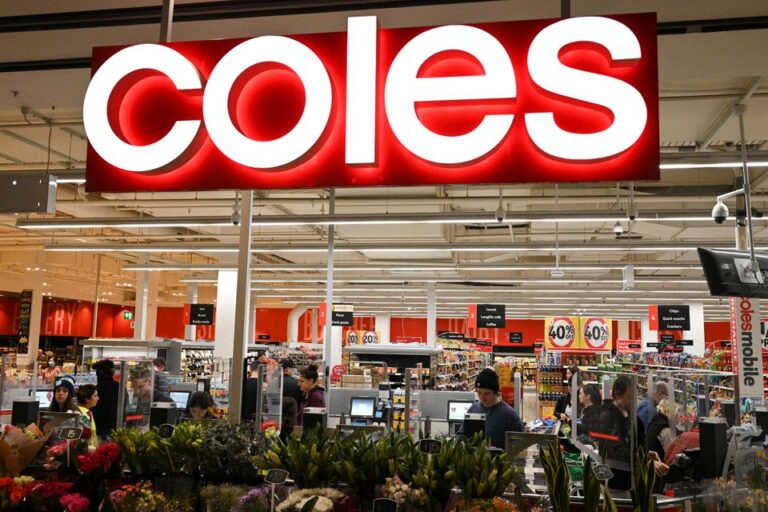
SYDNEY, (Reuters) – Australian grocer Coles Group Ltd (COL.AX) said December half profit fell in line with analysts’ forecasts as cost controls offset COVID-19 disruptions, adding that an explosion of household savings would enable people to keep shopping despite inflation.
The first-half result suggests the No. 2 supermarket chain outperformed larger rival Woolworths Group Ltd at a time when many staff have had to isolate and supply chain pressures have left shelves understocked with elevated prices on some products. Coles shares jumped 4%.
Coles and Woolworths, which collectively sell about two-thirds of Australian groceries, benefited initially from a rush of “pantry loading” as pandemic-related restrictions prompted people to spend more time at home.
But they are also among Australia’s biggest employers and rising COVID-19 case numbers saw high numbers of frontline, warehouse and delivery staff forced to isolate, driving up costs and limiting the ability to restock shelves.
For Coles, net profit dipped 2% to A$549 million in the six months, broadly in line with analysts’ forecasts and including costs associated with an automated distribution system it is building. Pre-tax profit from supermarkets, where it makes most of its money, declined 0.8%, while profit from liquor and service stations fell more.
“Coles seems to have managed a difficult trading period well relative to Woolworths,” said Barrenjoey analysts in a client note, which noted that Woolworths had previously flagged a larger decline in grocery sales for the same period.
Shares of Coles hit their highest intraday level in six weeks, while the broader Australian market (.AXJO) fell 1%. Shares of Woolworths, which reports first-half results on Wednesday, were up 1.7% by mid-session.
Coles CEO said shelf prices of some products, like red meat, were heightened, but prices of other items like apples and avocados were unusually low because of favourable growing conditions.
“We have seen further cost price pressure coming through in the early part of this half and we expect that to continue, based on both local and global input prices and various supply chain costs including the cost of oil”, he said on an analyst call.
“I would expect own-brand penetration to continue to increase for those who are looking for value, but equally we should recognise that there’s more than A$100 billion in consumer bank accounts than there was pre-Covid.”
Coles declared an interim dividend of 33 Australian cents per share, in-line with last year.






